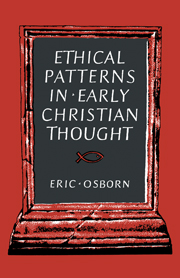5 - AUGUSTINE OF HIPPO
Published online by Cambridge University Press: 12 November 2009
Summary
Augustine was born in 354 at Thagaste in North Africa. His pagan father was Patricius and his Christian mother was Monica. Through the generosity of a rich man of his town, he was able to go to Carthage in 370 to study. It was there in 371 he took a mistress and in 372 his son was born. He found Carthage attractive in all kinds of ways. Here he could study, here he could enjoy himself. Here at the age of eighteen the first great point in his intellectual life was reached. While reading a dialogue of Cicero he was inspired with a love of truth. He writes, ‘Every vain hope at once became worthless to me and I longed with an incredibly burning desire for an immortality of wisdom, and began now to arise that I might return to thee.’ The journey of the prodigal to the father's house was to take many years yet; but the intellectual fire never left Augustine and it was his mind as much as his heart that brought him home to God. He found the Bible barbaric and incomprehensible after the literature of the schools. He joined the Manichees because they were always talking about truth and their dualism made some sense of the problem of evil; but he never went far in their religion and remained an ‘auditor’ for nine years. He returned home in 373 and became a teacher in Thagaste. The following year he returned to Carthage where he remained until 383, when he left for Rome with hopes of high appointment and more agreeable students.
- Type
- Chapter
- Information
- Ethical Patterns in Early Christian Thought , pp. 143 - 182Publisher: Cambridge University PressPrint publication year: 1976



